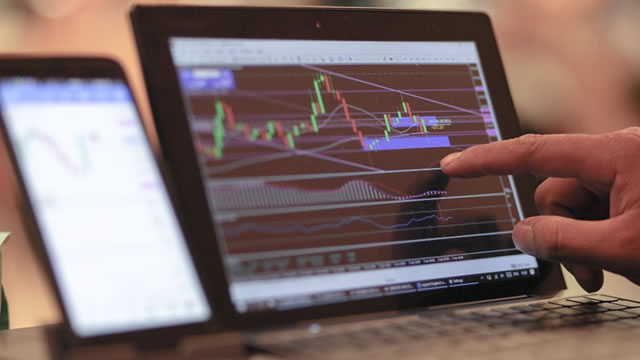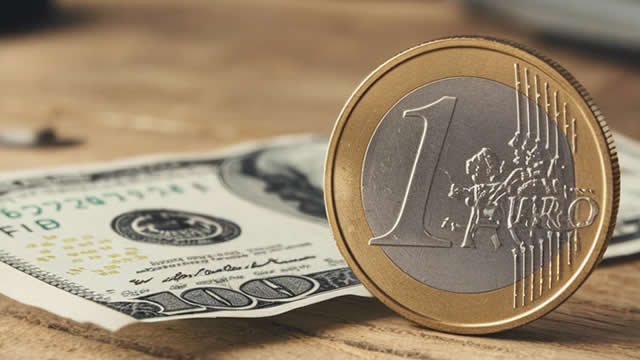The Latest Currency Market Developments: A Look at the GBP/EUR Exchange Rate
The currency market has seen some interesting developments in recent days, with the British Pound (GBP) and Euro (EUR) trading at around €1.1948 as of today. This figure represents only a slight change from Tuesday’s opening rate, with the GBP showing little to no significant gains against the Euro.
Struggles for the Euro: The Latest Consumer Price Index
The Euro’s struggles can be attributed to several factors, one of which is the latest consumer price index (CPI) data released by the European Union (EU). The CPI measures the change in the price of goods and services in an economy over a specific period. A decrease in the CPI indicates deflation, while an increase suggests inflation.
On Tuesday, the EU announced that its CPI had decreased by 0.2% in February, marking the second consecutive monthly decline. This news put downward pressure on the Euro, as investors became increasingly concerned about the prospect of deflation in the EU economy.
Impact on Consumers and Businesses: Deflation and the Euro
Deflation can have negative consequences for both consumers and businesses. For consumers, falling prices can be a welcome sight, as they are able to purchase goods and services at lower costs. However, deflation can also lead to a decrease in spending, as consumers may delay purchases in the hopes of even lower prices in the future.
Businesses, on the other hand, can be negatively impacted by deflation, particularly if they have fixed costs, such as wages or rent. In a deflationary environment, it can be challenging for businesses to maintain their profit margins, as the prices of their goods and services may not keep pace with the falling costs of production.
Global Implications: The Role of Central Banks
The potential impact of deflation on the EU economy is not limited to its borders. As a major global economic power, the EU’s economic fortunes can have far-reaching consequences. Central banks around the world are closely monitoring the situation and are prepared to take action if necessary.
For example, the European Central Bank (ECB) has already taken steps to combat deflation, including implementing a quantitative easing program in 2015. The ECB’s actions have helped to stabilize the Euro and boost inflation, but the challenge remains to keep inflation at or near its target level of just below 2%.
Personal Implications: How to Protect Yourself
If you are an individual investor or business owner with exposure to the GBP/EUR exchange rate, it is essential to stay informed about market developments and take steps to protect yourself from potential negative impacts.
- Consider hedging your currency exposure through the use of forward contracts or options.
- Monitor inflation data and economic indicators in both the EU and the UK.
- Diversify your investments across multiple asset classes and currencies.
- Consider seeking the advice of a financial advisor or currency specialist.
Conclusion
The GBP/EUR exchange rate has remained relatively stable in recent days, with the Euro continuing to struggle in the face of deflationary pressures. The potential impact of deflation on both the EU economy and global markets is significant, and central banks around the world are closely monitoring the situation. As an individual investor or business owner, it is essential to stay informed and take steps to protect yourself from potential negative impacts.
By staying abreast of market developments and taking a proactive approach to managing your currency exposure, you can help mitigate the risks associated with currency fluctuations and position yourself for long-term success.
Remember, knowledge is power, and the more you know about the currency market and its underlying trends, the better equipped you will be to make informed decisions and navigate the complex world of international finance.





